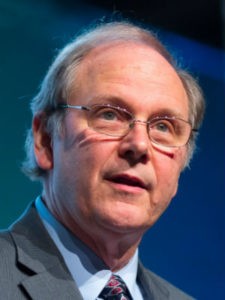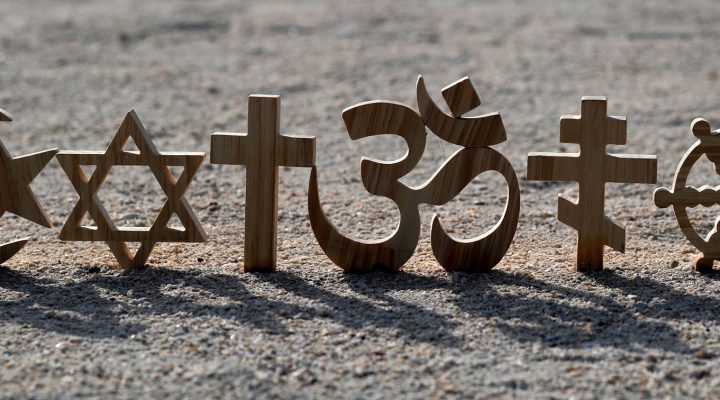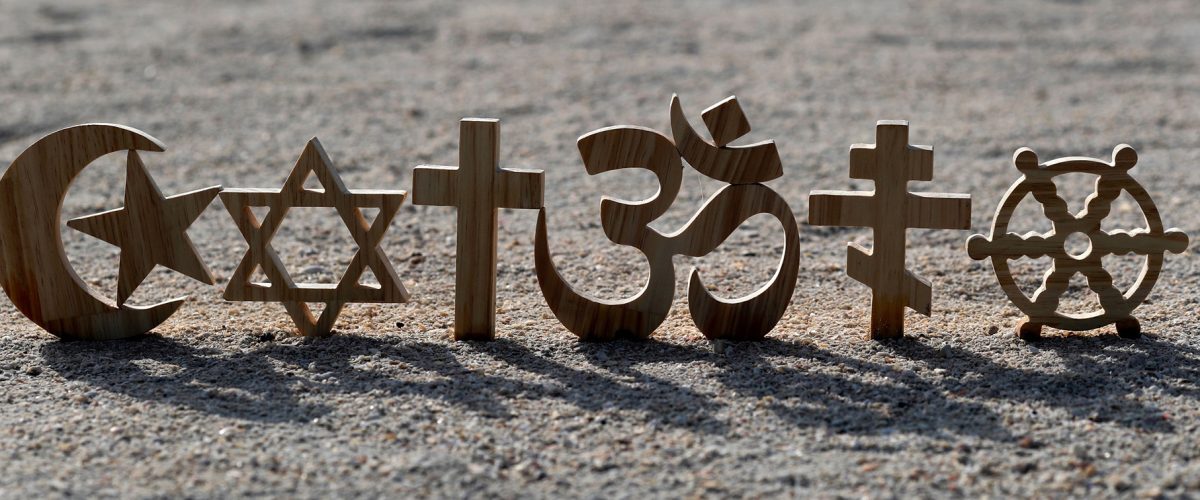By way of introduction, I am a devoted follower of Jesus with a passion for interfaith relations. I was born and reared in Florida in the family of a Southern Baptist pastor, where Dad and Mom helped form in me both a Baptist identity and a love for the church.
I gave my heart to Jesus as a child in our Baptist church, grew in faith and knowledge through all of the activities of our Baptist youth group, received my bachelor’s degree from a Baptist university, earned two graduate degrees from a Baptist seminary, served 25 years as a Baptist missionary in Asia, and taught two decades in Texas at two Baptist universities and their seminaries.

Robert Sellers
So, with what seems like a very traditional Baptist spiritual pilgrimage, how did I become so committed to interfaith relations? I have arrived at this spiritual place in my life because I am a Baptist who believes in soul freedom, the liberty to make spiritual decisions for my own life as I understand them, guided by Scripture, prayer, history, the wisdom of great teachers and personal experience.
My spiritual journey
Phileena Heuertz, author and spiritual coach, in her book Pilgrimage of a Soul, states: “To really thrive in life, our soul needs to be transformed — over and over again. This is the work of the spiritual journey”
We may not always understand the ways random circumstances, personal choices or perhaps the unfolding of providence have helped form us. While we are traversing the mountains, valleys, switchbacks, straight stretches, rough places and smooth trails of life, we may not see how separate experiences together comprise the pilgrimage that leads to our becoming.
Yet, it is a particular joy to look back, through the eyes of advanced age, experience and faith, to contemplate the different places to which God’s Spirit has led us.
“Along the way, my life has been touched by the beautiful people I have met, many of them followers of spiritual paths different from my own.”
The place where I find myself now — where I flourish and grow, celebrate and learn, encourage others and am blessed by others — is my interfaith home. My spiritual journey of the heart has taken me to live and work in the Philippines and then Indonesia for almost a quarter century, as well as to travel, study and minister in more than 40 other countries. Along the way, my life has been touched by the beautiful people I have met, many of them followers of spiritual paths different from my own.
Six lessons
What lessons have I learned on this spectacular interfaith pilgrimage? Here are several:
All of us are relatives in one great human family. We are siblings, regardless of our distinctions and differences. Afro-Caribbeans, atheists, Baha’is, Buddhists, Christians, Confucians, Hindus, Jains, Jews, Muslims, Native American indigenous religionists, New Thought explorers, Pagans, Shinto adherents, Sikhs, Taoists, Unitarians, Wiccans, Yoruba followers and Zoroastrians have the same kind of human experiences that mark the movement from birth to death. Our ideological and religious differences don’t negate that innate kinship.
We are all a mixture of good traits and bad impulses. We all have the ability to be generous, kind, helpful and peaceable, yet we all also have the capacity to be selfish, unkind, self-centered and contentious. It is not the case that Christians are more compassionate than Muslims, Buddhists more peaceful than Native Americans, or Baha’is more open-minded than Jews. Rather, each one of us in the human family can alternately exhibit good or bad behavior, which is why interfaith relationships can serve to inspire the better angels of our human nature.
My work is better when I partner with those who differ from me. As former chair of the board of trustees of the Parliament of the World’s Religions, my executive committee consisted of Hindu and Pagan vice chairs, a Jain treasurer and Jewish secretary, with at-large members who were Baha’i, indigenous, Muslim, New Thought and Sikh. The cultural and religious diversity of this executive committee, and of the larger board of 30 which I led, meant ideas and insights originating from many parts of the spiritual and physical world ensured I was consistently being sharpened and our work lifted to a higher level.
“Since all of us in the human family experience the same problems in life, it is wise to seek solutions to our common problems together.”
We can do more together than we can do apart. As Ecclesiastes 4:12 teaches, “A cord of three strands is not quickly broken.” Since all of us in the human family experience the same problems in life, it is wise to seek solutions to our common problems together. How long have Christians felt we were God’s only hope for changing our world? Is it not time to join our efforts with our neighbors and siblings from other faiths who also can be part of the solution?
My own faith is strengthened and enriched by the faith of others. There is much to be gained from engaging those whose religious paths are different. From my Pagan friend Andras, I have formed a deeper love for the earth, which gives us life. From my Jain friend Kirit, I have observed, at close hand, how morning meditation creates a calm and centered spirit. From my Hindu friend Kusumita, I have been inspired to dedicate myself to following the footsteps of my spiritual teachers. From my Wiccan friend Phyllis, I have been reminded of the feminine, birthing, nurturing aspects of the divine. From my Sikh friend Kuldeep, I have experienced the joy of generosity as he coordinated langar, or “community kitchen” free meals for thousands of participants at the Parliament convening in Toronto. From my Muslim friend Muhammad, I have been challenged to participate with people of multiple faiths in the global interfaith family, working cooperatively to pursue peace and justice.
Participating in and promoting interfaith friendship, dialogue and cooperation is my new divine calling. Therefore, I intend to remain active in this work as long as I am able to do so. Diana Eck, professor of comparative religions from Harvard University, explains, “Pluralism is not an ideology… and not a free-form relativism. Rather, pluralism is the dynamic process through which we engage with one another in and through our very deepest differences.” Following this definition from perhaps America’s greatest living world religionist and a dedicated Christian Methodist, I have come to consider myself a “Christian pluralist” — by which I mean I am totally committed to Jesus and his claim upon my life, yet dedicated to the task of engaging positively with persons of other faiths.
The bottom line
Scriptures and my own experiences with followers of other faiths around the world have guided my journey over the last 50-plus years. But it is really my conviction of how Jesus treated those who were different that has shaped my theological commitments.
Persons he welcomed to the table of fellowship comprised an unthinkable guest list in the eyes of the religious in-crowd. I believe if he were here, today, in the flesh, Jesus still would be welcoming those who are considered outsiders.
However, he is not here in the flesh. But I am. And that realization continues to shape my beliefs and guide my actions as I continue making my personal spiritual pilgrimage and wondering aloud about those whom God accepts.
Rob Sellers is professor of theology and missions emeritus at Hardin-Simmons University’s Logsdon Seminary in Abilene, Texas. He is a past chair of the board of the Parliament of the World’s Religions in Chicago. He and his wife, Janie, served a quarter century as missionary teachers in Indonesia. They have two children and five grandchildren.
Related articles:
Lessons learned on a journey of interfaith friendship | Opinion by Rob Sellers


